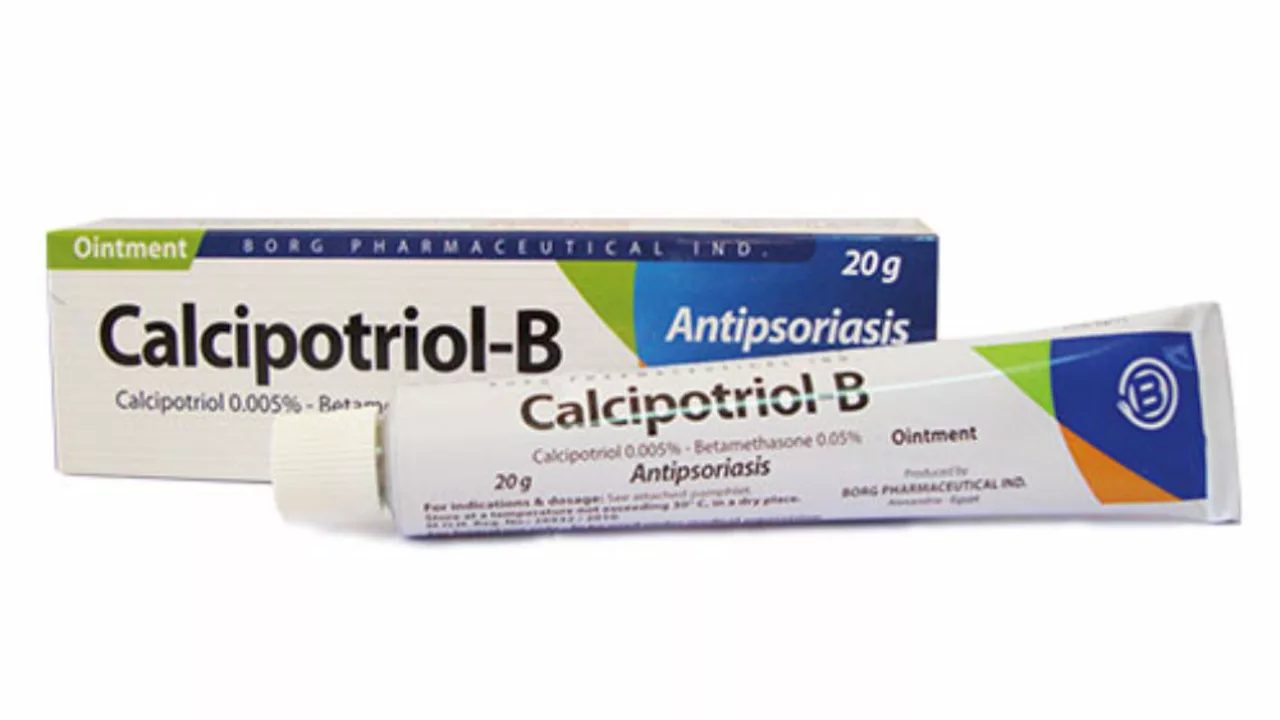Calcipotriol: What It Is and How It Helps Your Skin
If you’ve been told you have plaque psoriasis, chances are you’ve heard of calcipotriol. It’s a synthetic form of vitamin D that works right on the skin to slow down cell growth. By binding to receptors in skin cells, it reduces the thick, scaly patches that make psoriasis uncomfortable.
Most people use calcipotriol as a cream or ointment applied once or twice a day. The medication is not taken by mouth, so it avoids many of the systemic side effects you might see with oral drugs. That makes it a popular first‑line choice for mild to moderate psoriasis.
How to Use Calcipotriol Correctly
Start with clean, dry skin. Apply a thin layer to the affected area and gently rub it in. You don’t need a lot – a pea‑size amount is enough for most patches. If your doctor prescribed twice‑daily use, keep the morning and evening schedule consistent.
A common mistake is covering the treated spot with heavy bandages or dressings. Doing so can increase irritation. Instead, let the skin breathe; wear loose clothing if possible. If you miss a dose, just apply it as soon as you remember unless it’s almost time for your next scheduled dose – then skip the missed one and continue as normal.
Side Effects You Might Notice
Most users experience mild irritation: redness, itching, or a slight burning feeling. These symptoms usually fade after a week of regular use. If you see severe peeling, blistering, or a rash that spreads beyond the treatment area, stop using calcipotriol and call your doctor.
Because it’s a vitamin D analog, long‑term overuse can raise calcium levels in the blood. That’s why doctors limit the amount of skin surface you treat at once – usually no more than 30% of body area.
Pregnant or nursing women should talk to their healthcare provider before starting calcipotriol. While there’s limited data, most clinicians recommend avoiding it unless benefits clearly outweigh risks.
When buying calcipotriol online, stick with reputable pharmacies that require a prescription. Look for sites that display a valid pharmacy license and have clear contact information. Avoid offers that sound too good to be true – extremely low prices often mean counterfeit products.
To save money, compare prices across a few trusted sources and check if your insurance covers the brand or a generic version. Some pharmacies also offer discount cards you can print at home.
In short, calcipotriol is an effective, topical tool for managing psoriasis when used properly. Follow your doctor’s instructions, watch for skin reactions, and shop only from verified online pharmacies. With the right approach, you’ll see smoother skin without a lot of hassle.

Calcipotriol and the Immune System: Understanding the Connection
Well, folks, buckle up! We're diving head-first into the fascinating world of Calcipotriol and its jaw-dropping relationship with our immune system. You see, this little-known compound, Calcipotriol, is a Vitamin D derivative that's got some serious superpowers. We're talking about modulating our immune response kind of powers! Ain't that something? Our body's defense system and this sunshine vitamin derivative are like the dynamic duo of health. So, let's suit up and understand this connection, because it's far more exciting than any superhero movie you've watched recently!